The importance of the early years
The intellectual capacities of children are significant and their understanding of their learning experiences and life experiences is sophisticated and meaningful.
We also know that the Kindergarten years set our children up for positive experiences when formal schooling begins especially when their educators understand and respect their capacities.
By this time, the children have begun the development of their social and emotional skills which enables them to make friends and negotiate with their peers. They have developed an understanding of social norms and as such can take turns or show their gratitude towards a peer or teacher. The children are ready for literacy and numeracy and demonstrating their observation and research skills. They have the cognitive capacity to enable sustained concentration, retrieval of information and the ability to make links with prior learning. They are eager to learn and want to dive more deeply into topics.
Early learning research suggests there is a strong link between the environment, play and relationships in the social, emotional and intellectual development of children. Relationships between educators and young children are a positive factor in the development of children’s understanding of self and are supportive of their social-emotional development.
For our Lauriston Kindergarten children, the Reggio Emilia approach provides a wonderful launchpad for such development.

Co-collaboration key to optimizing learning
The educator-child relationship is formed through interactions that researchers indicate are ‘characteristic of sustained shared thinking where their minds meet on matters that are of interest to them’.
“In essence, the educator and children build the curriculum together.”
At Lauriston Kindergarten, the educator actively seeks out and builds on the interests of the children and their current knowledge. To build this type of curriculum certainly relies on their understanding of the children in their care and also their own personal creative abilities. There is also a fairly high degree of individualized learning, as the educator tailors learning activities to meet the interests and knowledge of each child.
A balance of child-guided and teacher-guided play experiences enhances the social and emotional development of children. Through play they learn to regulate their emotions, see the perspectives of others, learn to negotiate and compromise and how to make their own decisions. The social norms of the broader community are learned, along with a broader understanding and acceptance of cultural differences.
The Hundred Languages of Children by founder, Loris Malaguzzi, lies at the heart of the Reggio Emilia approach, and this has been described as the symbolic languages children use to express their own knowledge and desires through art, conversations, early writing, dramatic play, music, dance. Our early learning educators provide our children with many opportunities to express themselves through their creativity and the insights they share. Through such activities, I believe that the children are learning about themselves as individuals and communicating their conceptual understanding of the world they live in.
The third teacher’s role
The environment plays an important role in the development of children and the Reggio Emilia approach to early learning envisages the environment as the third teacher. While the rooms are functional spaces they are also beautiful and reflect the learning of the children. The room inspires the creativity of the children and also communicates a respect for objects, furniture and resources which in turn further develop their social, emotional and intellectual capacities. The outdoor environment is equally respected, with the educators and children reflecting on the wonder of the natural world and what can be learned through investigations of the flora and fauna.
The Lauriston Bush Kindergarten offers another learning environment for our children in that in this space the children can take calculated risks and enhance their imaginative play. At Bush Kindergarten it is okay to get dirty, splash in the puddles after the rain, explore the trees and plants, and make up your own games and play objects. The first tree that we climb is an important milestone and playing outside as the seasons change allow us to observe the cycle of life and the changing colours of our landscape. Our children need time for unstructured play and I would argue that our children need time to do whatever they feel like. If they want to explore the tadpoles in the stream or look out for bush creatures, then this is just as valuable as the swimming lesson, piano lesson or gymnastics lesson which often fill the afternoon schedules of children.
Instilling a love of learning
The capacity of our children should be recognized, along with the incredible work of Lauriston’s early learning and Kindergarten educators whose individualized approach to learning has helped to establish a love of learning for the years to come.
Susan Just
Principal, Lauriston Girls’ School
SHARE THIS ON

